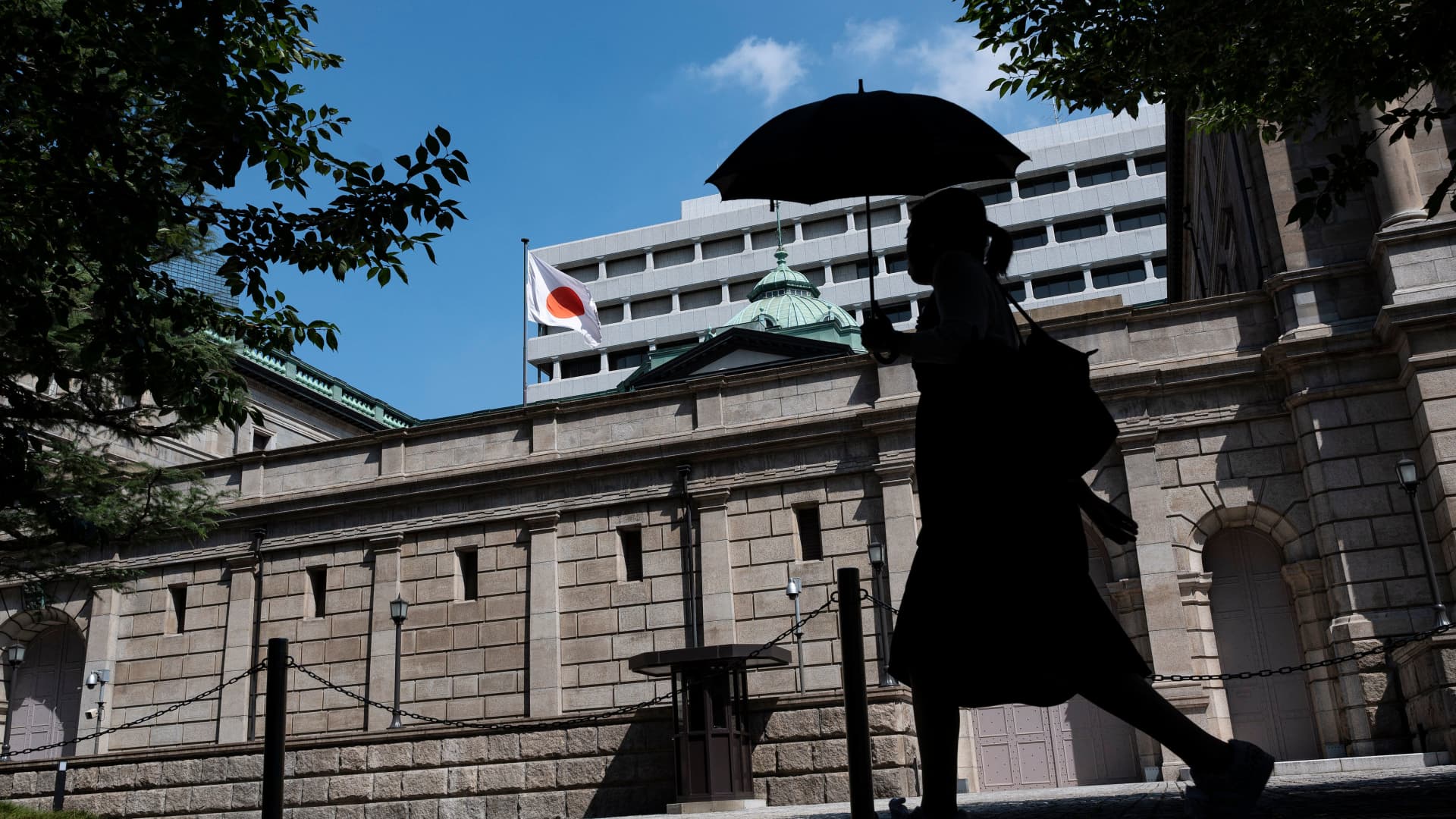
Australia central bank considered hiking in December, but paused due to limited data: Minutes
The Reserve Bank of Australia considered hiking rates by 25 basis points in December, but eventually decided to hold rates at 4.35%, minutes from the central bank showed.
The RBA said the case for raising rates was tied to expectations that inflation would remain above its 2% target for a prolonged period, and that there were risks this period could be extended.
Furthermore, underlying inflation was noted to be higher in Australia than in several other countries.
On the other hand, the RBA’s case for holding rates was due to weak consumption demand growth, with members also noting that the pace of disinflation in some other countries over recent months had accelerated. “If emulated in Australia, this would be helpful in bringing inflation back to target.”
— Lim Hui Jie
Nippon Steel plunges nearly 6% after deal to buy US Steel
Japan’s Nippon Steel fell 5.8% to 3,052 yen in the first hour of trading after it agreed to buy U.S. Steel for $14.9 billion in cash late Monday.
Nippon Steel is buying U.S. Steel for $55 per share, representing a nearly 40% premium from U.S. Steel’s last closing price of $39.33 on Friday.
The acquisition of U.S. Steel will allow Nippon Steel to move toward 100 million metric tons of global crude steel capacity.
The Nikkei 225 index was flat, while the broader Topix was 0.3% lower as investors awaited the Bank of Japan’s decision on interest rates later in the day.
— Shreyashi Sanyal
Yen strengthens for third straight day ahead of Bank of Japan rate decision
The Japanese yen has weakened significantly against the dollar in 2022.
Stanislav Kogiku | SOPA Images | LightRocket | Getty Images
The Japanese yen strengthened against the dollar, trading within the 142 range. It is up for a third straight day.
Investors are gearing up for the Bank of Japan’s final rate decision of the year, where the central bank is expected to stick with its negative interest rate policy, according to a Reuters poll of economists.
The BOJ’s stance on its yield curve control policy will also be closely watched.
“There is no immediate urgency for the Bank of Japan (BOJ) to change its accommodative stance, but our base‑case scenario is that it will terminate the current negative interest rate policy in April 2024 to coincide with the annual wage negotiations,” Aadish Kumar, international economist at T. Rowe Price wrote in a client note.
“The other key decision facing the Bank of Japan is when—and how—to remove its yield curve control (YCC) policy. While this could happen as early as December this year, the YCC policy has already been gradually winding down, with the parameters of the 10-year yield cap being loosened toward the point of becoming irrelevant,” Kumar added.
Japan’s Nikkei 225 was headed for a flat open, with the futures contract in Chicago at 32,810 and its counterpart in Osaka at 32,740 against the index’s last close of 32,758.98.
— Shreyashi Sanyal
Oil settles higher on Red Sea shipping disruption
Oil prices rose more than 1% on Monday as attacks on vessels in the Red Sea create shipping disruptions.
The West Texas Intermediate contract for January rose $1.04, or 1.46%, to settle at $72.47 a barrel. The Brent contract for February gained $1.40, or 1.83%, to settle at $77.95 a barrel.
BP announced on Monday that it was pausing shipping through the Suez Canal in response to attacks by militants in Yemen on vessels in the Red Sea.
— Spencer Kimball
Fed’s Goolsbee says he was ‘confused’ by market reaction
Chicago Fed President Austan Goolsbee said on CNBC’s “Squawk Box” that the market may have misinterpreted the central bank’s update from last week, when the Dow jumped to a record high.
“It’s not what you say, or what the chair says. It’s what did they hear, and what did they want to hear,” Goolsbee said. “I was confused a bit — was the market just imputing, here’s what we want them to be saying?”
The Fed president also pushed back against the idea that the Fed is actively planning on a series of rate cuts.
“We don’t debate specific policies, speculatively, about the future. We vote on that meeting,” he said.
— Jesse Pound
Real estate, utilities underperform the S&P 500
Real estate and utilities underperformed on Monday. The sectors were the only two trading in negative territory. Real estate was down by 0.8%, while utilities declined 0.6%.
Kimco Realty and Boston Properties were lower by more than 1%, each. Prologis was off by 1.2%.
Exelon shares dropped by 3%, while PG&E declined more than 2%. Pinnacle West Capital fell by 1.5%.
— Sarah Min
Tech stocks could face steeper pressure in 2024, Bernstein says
Tech stocks could face a larger wave of pressure in 2024, according to Bernstein senior research analyst Toni Sacconaghi.
“We struggle to recommend an overweight in tech for 2024,” the analyst wrote in a Monday note. “Tech has outperformed by 2500+ bps twice in the last 20 years (2009 and 2020) and both times subsequent next year performance was in line with the broader market.”
Sacconaghi said that while the firm finds it difficult to remain overweight on tech stocks, Bernstein is stopping short of moving to an underweight rating due to strong momentum, falling interest rates as well as the overall outperformance of the sector which makes it “statistically tough (and economically punitive) to actively ‘bet against’ tech.”
— Brian Evans




